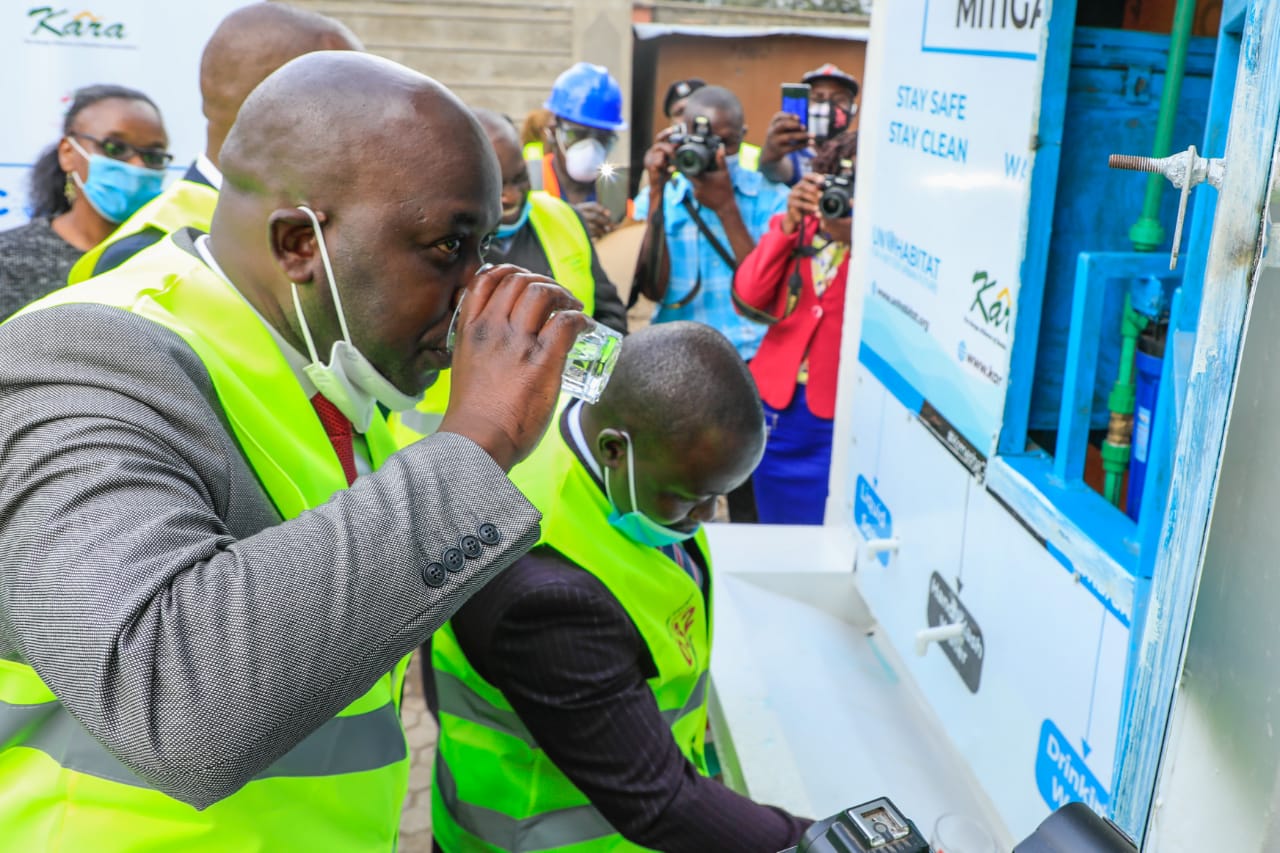Nakuru, Kenya, July 2020 – One of Kenya’s largest urban areas, Nakuru, has installed eight permanent handwashing stations with clean drinking water with funding from UN-Habitat to stop the spread of COVID-19
The stations were set up by the Nakuru Municipal Board through the Kenya Alliance of Resident Associations (KARA). Nakuru Municipality, which has over 600,000 residents, faces various challenges including a shortage of water and sanitation facilities and services. Each handwashing facilitiy, which has a separate tap for drinking water, will serve up to 31,000 residents.
During the launch, Nakuru’s Deputy Governor Erick Korir read a statement on behalf of Nakuru County Governor Lee Kinyanjui, appreciating UN-Habitat’s support. He stated: “We are keen to establish sustainable sanitation measures that will help our people during and after this COVID-19 pandemic. Nakuru County has so far recorded 191 cases which shows how close this disease is to us”.

The handwashing stations are part of the activities under the UN-Habitat COVID-19 Action Plan for Kenya currently under implementation in six counties across the country. They are managed by community youth groups trained by KARA and the County Government’s Public Health Department to create jobs for local youth. It is aligned to the national Government’s “Kazi Mtaani” which aims to address COVID-19 in urban areas while enhancing economic recovery by providing employment opportunities for youth and women.
UN-Habitat also donated surgical masks, provided by TLC Foundation, to be used by youth assistants managing the stations as well as Community Health Volunteers within the Municipality.
To further ensure sustainability, the Nakuru Municipal Board has set up a technical team to review and develop new municipal WASH by-laws, to strengthen compliances and enforcement.